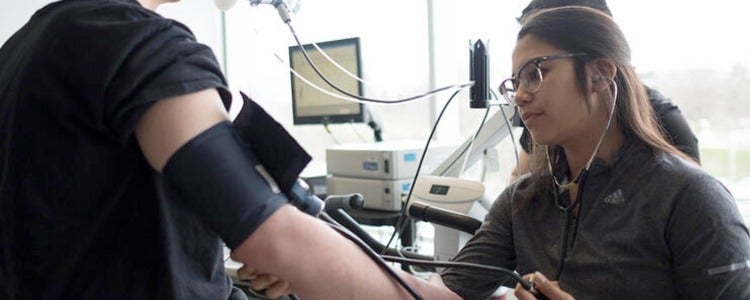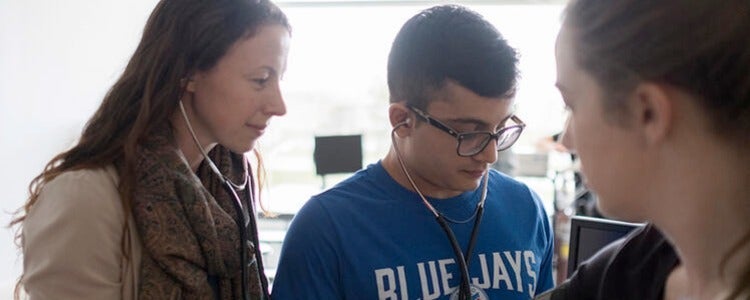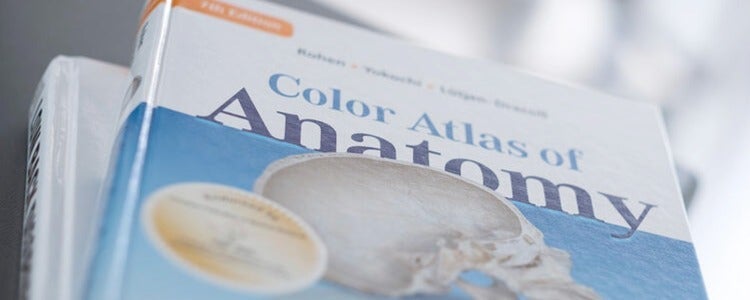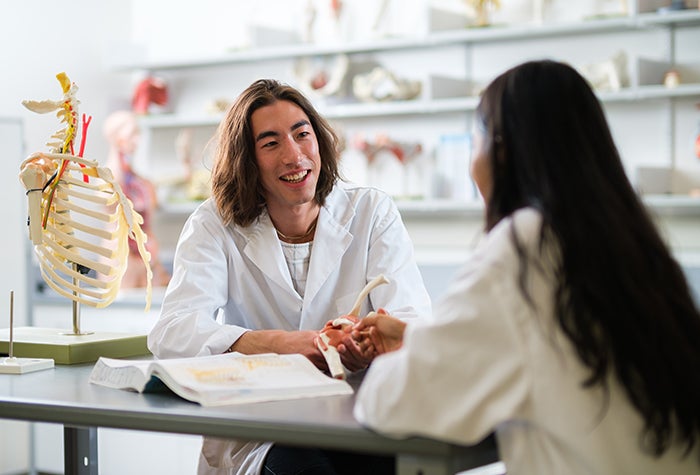Written by Emily, student
Finding the right university or post-secondary institution to attend after high school can be a tough decision.
If you’re thinking about a kinesiology or human kinetics program, taking a tour of the labs and facilities at the schools you’re considering is a great way to find out if they’re right for you.
When you’re on the tour, it can be tough to come up with good questions on the fly — that’s why I’m here to help!
Top 10 questions to ask when you’re on a kinesiology lab tour
1. What sets your kinesiology labs apart from other schools?
Each school has features that set it apart from other schools — but what about the kinesiology labs? Do they offer you a chance to learn human anatomy from studying a cadaver in your first year? Do you learn how to use the latest equipment? This question is an important one to gauge how different the program might be when compared to other schools.
2. What will I learn in the labs?
Lab courses are an important tool in taking what you’ve learned in the classroom and applying it in a safe setting before moving on to the outside world. Knowing what skills you’ll learn in the lab and how they can be applied outside of a school setting is another important thing to consider.

3. When will I start taking lab courses?
Will your first lab be in your fourth year? Or will you get the chance to hit the ground running and start taking lab courses right in your first semester? Starting labs in first year can help you practice and develop technical and transferrable skills right away, and can give you an edge when applying for volunteer positions or part-time and co-op jobs.
4. What is the effect on your learning if you have a lab course in addition to a lecture course?
Lab courses can be a unique opportunity to apply the technical knowledge that you learn about in a lecture. Kinesiology encompasses many fields that require hands-on skills, so being able to practice and hone in your skills while being supervised by experts really helps you to understand the lecture content on a whole new level.
5. How is the lab content tailored to the different learning needs of each student?
Knowing that the lab content can support your learning needs is important. Labs that use 3D models, human cadavers, textbooks, and presentations often provide a rich learning environment for visual, auditory, and kinesthetic learners.

6. What is the amount of work required outside of the lab itself?
Knowing how much time you’ll need to put into a lab course is important when managing your time effectively. So, by asking if you will have pre-lab prep or post-lab quizzes to complete will help you to get an idea of the expected workload.
7. What role does a lab play in my overall course grade?
Lab courses that break down how you will be graded and give you many opportunities to reach your desired grade are valuable. Labs that offer practice exams and have a lab manual to fill out really help to engage you as a learner and increase your understanding of the material.
8. Who teaches the lab courses?
A lab course can be an opportunity to learn from a professor or lab demonstrator who is an expert in their field. An expert brings a unique perspective into the lab and can offer suggestions to problems experienced in the lab based on their extensive background and experience. They also have great stories to share with you about their career path and personal experiences.

9. What kind of materials will I need to bring with me to the lab? And will those things be provided or do I need to purchase them?
This is a smart item to note. Will you need to spend extra money on getting all the supplies you need? Or will the lab supply a majority of the materials and you just need to bring a kit or lab coat?

10. Is this lab going to be something I enjoy?
This last one is a question you need to ask of yourself. At the end of the day, lab courses are a beneficial tool to complement your learning. However, you want to be sure you’re going to enjoy the content.
There you go! You now have a complete list of questions to uncover valuable information. From the moment you walk in to the moment you leave, the tour guides will know that you’re a force to be reckoned with when it comes to choosing the right kinesiology program for you.
Learn more about Waterloo's Kinesiology degree.
Related articles

73 questions with a Waterloo Kinesiology student
Curious about Kinesiology? Get real info about the program from William, a current Kinesiology student.

Inside Kinesiology's School of Anatomy
Did you know? In our Kinesiology program, you get to study anatomy on real human cadavers — in your first year! Waterloo is among just a handful of universities in Canada that gives first-year students this kind of hands-on experience.

Preparing for labs in university
Science labs can really help you understand and apply what you’ve learned in a lecture, and depending on what you're learning about, they can really blow your mind. For those of you who are already excited about university labs (I've been there!), here are the answers to some questions you've been wondering about.

